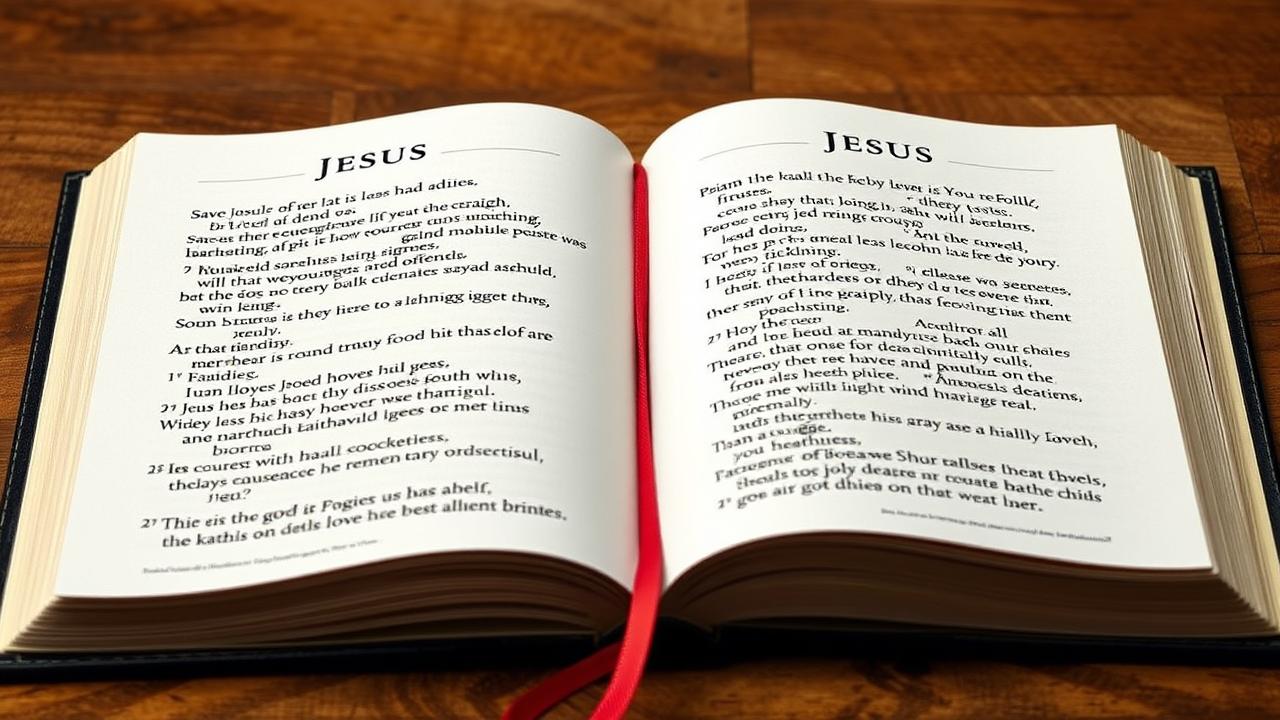Step-by-step tutorial to build a plugin…
\nThe Divine Shepherd
Psalm 23 is one of the most recognized chapters in the Bible, known for its comforting depiction of God as a shepherd. In this metaphor, the Lord guides and provides, giving assurance of his eternal presence and care. Through the teachings of Jesus, this imagery is brought to life in the New Testament, offering deeper insights into the relationship between the Creator and His followers.
Jesus often referred to himself as the “Good Shepherd,” drawing parallels to the Psalm to express His role in guiding, nurturing, and protecting believers. This understanding bridges the Old and New Testaments, emphasizing the continuity of God’s love and leadership throughout scriptural narratives.
The Path of Righteousness
Walking through the “paths of righteousness” as mentioned in Psalm 23 is akin to the teachings of Jesus on living a life aligned with divine principles. These paths provide spiritual direction, underlining ethical living and moral integrity. Jesus’s sermons, such as the Sermon on the Mount, are profound examples of what it means to walk this path.
His messages continue to inspire believers to pursue justice, mercy, and humility, aligning with the righteous ways of the Lord. The scripture not only promises guidance but assures protection and guidance on this journey towards spiritual fulfillment.
Presence in Adversity
“Even though I walk through the valley of the shadow of death, I will fear no evil,” is a testament to the unwavering presence of God during challenging times. In the context of Jesus’s teachings, this line reaffirms believers of divine companionship in their trials. Such assurance is a cornerstone of faith, assuring that no shadow is ever too dark.
Jesus’s life and sacrifices demonstrate overcoming adversity, reinforcing trust in divine power and presence. His resurrection is the ultimate victory over fear, pain, and even death, offering hope and encouragement to all.
Abundance and Blessings
The concept of having “my cup overflows” signifies abundance and blessings from living faithfully. Jesus’s miracles, teachings, and parables often highlighted God’s generous provision and readiness to pour blessings upon His faithful. Such bounty goes beyond material needs to encompass spiritual richness and fulfillment.
From the feeding of the multitude to the promise of eternal life, the notion of divine abundance is persistently echoed throughout the Gospels. Jesus illustrates that God’s kingdom is ever expansive, boundless in love and compassion.
Goodness and Love
Living under the watch of “goodness and mercy” as stated in Psalm 23 parallels Jesus’s teachings on love and compassion. The embodiment of love was central to His ministry, urging believers to cultivate kindness and mercy. His parables often illustrate how these virtues lead to a fulfilling and peaceful life.
The transformative power of love and goodness is emphasized as the core of Christian living, compelling followers to act selflessly and tenderly towards others. This foundation of faith ensures a supportive and fulfilling community centered on divine love.
Dwelling in the Lord’s House
The aspiration to “dwell in the house of the Lord forever” showcases the eternal promise offered through faith. This eternal dwelling is made accessible through the teachings and sacrifice of Jesus, who opened the doors to everlasting life with God. It is a promise of an unending relationship grounded in faith and love.
Jesus’s assurance of eternal life brings Psalm 23 to its fruition, encouraging believers to focus on their spiritual journey and relationship with the divine. This eternal promise is the cornerstone of hope, fueling faith and perseverance throughout life’s course.
FAQ
What is the main theme of Psalm 23?
Psalm 23 primarily focuses on God as a shepherd who provides, guides, and protects His flock. It emphasizes assurance and peace in God’s presence during all life circumstances.
How does Jesus relate to the Good Shepherd metaphor?
Jesus identifies Himself as the “Good Shepherd” in the Gospels, solidifying His role in guiding, protecting, and sacrificing for His followers. This metaphor highlights the continuity between Old Testament and New Testament teachings.
What does “paths of righteousness” mean in today’s terms?
Walking the “paths of righteousness” refers to living a life that aligns with moral and ethical principles. It involves pursuing justice, compassion, and faithfulness, reflecting God’s character in everyday actions.
Why is Psalm 23 significant in adversity?
Psalm 23 offers comfort and reassurance during difficult times, affirming God’s presence and protection. It symbolizes faith and trust in divine support regardless of life’s challenges.
What is the promise of dwelling in the Lord’s house?
Dwelling in the Lord’s house forever suggests eternal life with God, made possible by Jesus’s teachings and His resurrection. It emphasizes a continuous relationship with the divine through faith and love.
\nWatch the Video:







